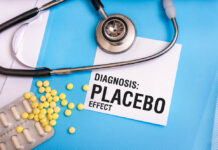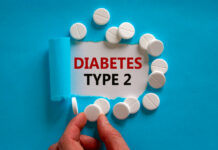Psychiatric Drugs
“Medicine Is Awesome” Mentality Fueling Harmful Antidepressant Use, Say Experts
The authors call for a paradigm shift in mental health care that emphasizes empathy, context, and alternatives to medication as first-line treatments for depression.
German GPs Say They Need More Support to Help Patients Stop Antidepressants
New research from Germany shows how guidelines, system pressures, and lack of collaboration limit deprescribing.
No Subgroup of Patients for Whom Antidepressants Are Effective
A reanalysis of STAR*D finds no support for the theorized subgroup of patients who do well on antidepressants.
Researchers Criticize Putting Preschoolers on Stimulant Drugs
Against guideline recommendations, preschoolers were often prescribed stimulants without even having the chance to try family behavioral therapy.
Not Even the Unborn Are Safe from Psychiatric Harm
Medical organizations and the media dismiss the experts and the large body of research telling of fetal harm from exposure to SSRIs during pregnancy.
Researchers: “We Do Not Suggest” Antipsychotics for Depression
Augmenting with antipsychotics was no better at reducing suicide than adding antidepressants, but led to increased risk of death from other causes.
Elderly Patients Who Stop Antipsychotics Have Better Outcomes
Older adults are often prescribed antipsychotics off-label for behavioral control in the hospital. But there’s no evidence for antipsychotics helping, and a great deal of evidence of harm.
From EMPOWER to Exercise: What Actually Helps Older Adults Quit Benzos?
Despite clear risks, benzos and z-drugs remain widely prescribed to the elderly. New research explores what helps—and what doesn’t—when trying to stop.
Exposure to Antidepressants in the Womb Makes for Sad, Scared Adolescents
SSRI exposure in utero “alters the offspring’s brain structure,” causing a hyperactive amygdala and fear circuits, leading to anxiety and depression.
Post-Acute Withdrawal Syndrome (PAWS): Why Don’t We Know More About It?
Persistent antidepressant withdrawal is a debilitating experience, but little research exists about its prevalence and treatment.
Antidepressant Withdrawal Is Common and Debilitating
Those using antidepressants long-term were more likely to experience withdrawal and to have severe withdrawal symptoms.
More Evidence That Antidepressants Work Via Placebo Effect
Antidepressants were more effective for depressed patients who were more “optimistic.” Still, only 30% responded to SSRIs.
Half of Those Who Take Antidepressants Are Labeled “Treatment Resistant”
Millions of people are trying multiple antidepressant drugs without success, and psychiatry labels them “treatment resistant.”
Antidepressant Trials Last Eight Weeks, So Why Do We Take Them for Years?
The studies are of short duration and are riddled with methodological issues like unblinding and failure to assess withdrawal.
Psychiatric Drugs “A Crude Form of Chemical Restraint”
Mental health nursing has a key role to play in helping people discontinue the drugs, writes Timothy Wand.
Animal Study: SSRI Neurotoxic in Pregnancy
Researchers: Fetal exposure to vilazodone hampers neurodevelopment and leads to "long-lasting neurodevelopmental impairments."
Antidepressants in Dementia Patients Increase Risk of Death and Fractures
A large-scale study reveals that antidepressant use is linked to faster cognitive decline in dementia patients, raising concerns about their widespread prescription.
Exploding Myths About Schizophrenia: An Interview with Courtenay Harding
The Vermont Longitudinal Study, led by Courtenay Harding, belied conventional beliefs about schizophrenia by showing remarkably good outcomes for patients discharged in the 1950s and '60s.
New Study Links Antidepressants to Increased Risk of Diabetes
Using genetic analysis, a new study finds that antidepressants—not depression—are responsible for a significant rise in type 2 diabetes risk.
Are Antidepressants Weakening Women’s Bones?
A study spanning two decades finds that antidepressant use is associated with a 44% increase in osteoporosis risk and a 62% higher chance of fractures.




















